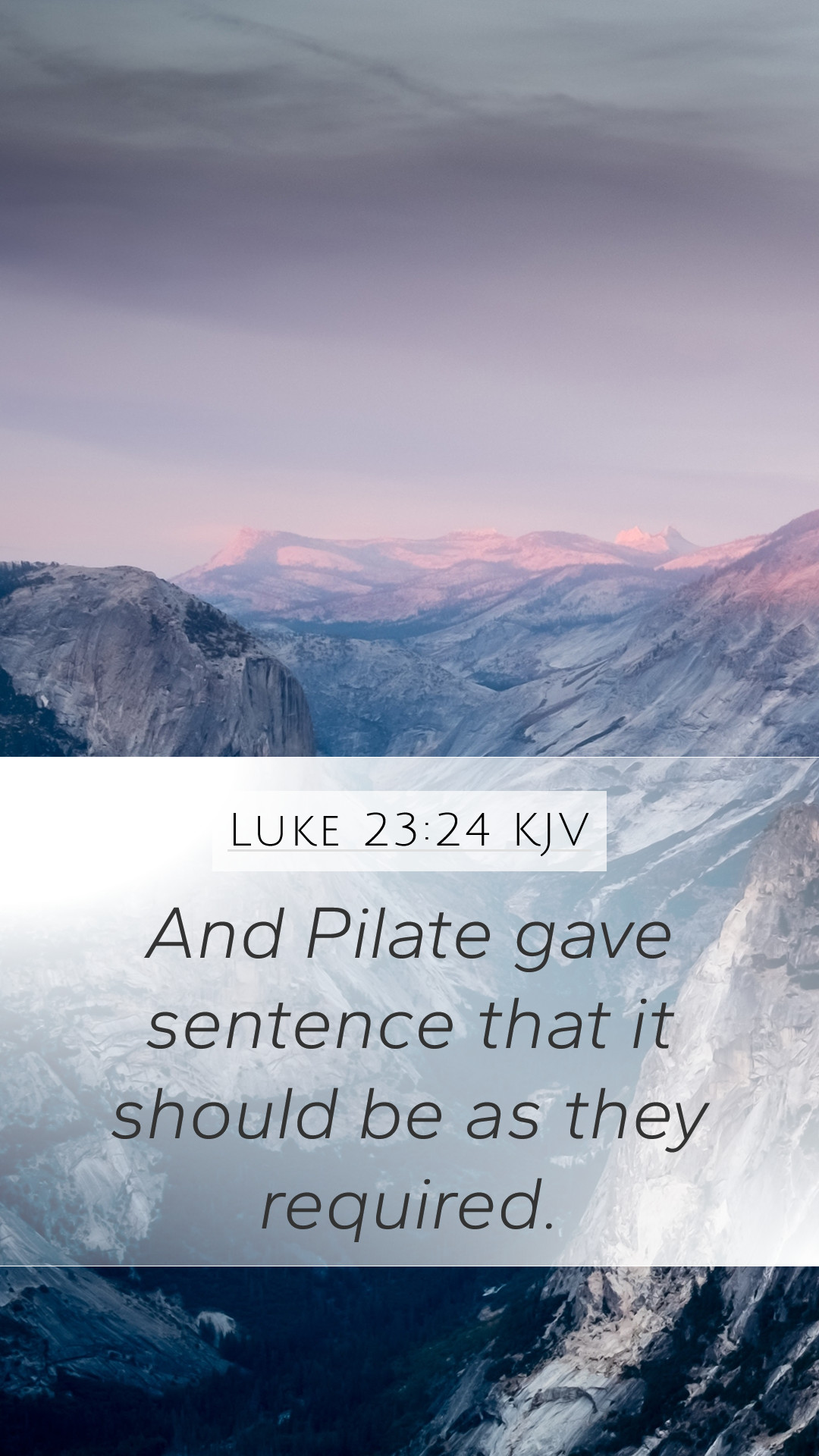Understanding Luke 23:24
The Bible verse Luke 23:24 states: "And Pilate gave sentence that it should be as they required." This verse captures a pivotal moment in the trial of Jesus Christ, reflecting deeper theological themes and historical context. Below, we explore the meaning of this verse through Biblical exegesis and commentary insights.
Overview of the Verse
In Luke 23:24, we witness a significant decision made by Governor Pilate regarding the fate of Jesus. This choice not only underscores the political and social dynamics of the time but also highlights the fulfillment of Scripture and the broader plan of salvation.
Key Themes and Insights
- The Authority of Pilate:
Pilate, embodying Roman authority, is a symbol of political power making a moral decision. His actions show the conflict between earthly authority and divine will.
- The Role of the Crowd:
The demands of the people illustrate the concept of mob mentality, where the collective voice can override justice and truth.
- The Fulfillment of Prophecy:
This moment is seen as part of the fulfillment of Old Testament prophecies regarding the suffering of the Messiah. Understanding Scripture in this context deepens the Bible verse interpretation.
Bible Verse Commentary
Matthew Henry's Commentary
Matthew Henry emphasizes that Pilate's decision was a reluctant concession to the demands of the Jewish leaders and the crowd. He explores the idea that Pilate, though he found no fault in Jesus, chose to appease the multitude, ultimately leading to the crucifixion. Henry also notes that this act illustrates how the leaders sought to eliminate Jesus, who challenged their authority and teachings.
Albert Barnes' Commentary
Albert Barnes discusses how this moment reflects the tension between justice and public opinion. Pilate's fear of losing his position and tranquility in his governance leads him to capitulate. Barnes highlights the irony that the Savior of the world is sentenced by the very people who were supposed to uphold justice.
Adam Clarke's Commentary
Adam Clarke provides an in-depth analysis of the historical context surrounding this verse. He points out the cultural and religious pressures that influenced Pilate's decision, noting that Pilate's character is marred by his inability to stand firm against unjust demands. Clarke also discusses the implications of this event for understanding the nature of Jesus’ sacrifice for humanity.
Significance and Application
Luke 23:24 serves as a poignant reminder of the complexities of human nature and governance. It challenges readers to consider the influence of societal pressures on personal decisions and the importance of standing firm in truth. Through this verse, individuals are encouraged to reflect on their own responses to authority and injustice.
Cross References
- Matthew 27:21: "The governor answered and said to them, 'Which of the two do you want me to release to you?' They said, 'Barabbas!'
- John 19:16: "Then he delivered Him to them to be crucified. Then they took Jesus and led Him away."
- Isaiah 53:7: "He was oppressed and He was afflicted, yet He opened not His mouth; He was led as a lamb to the slaughter."
Conclusion
In summary, Luke 23:24 encapsulates a crucial event in the passion narrative of Christ. Understanding this verse through the lens of historical context, commentary, and its theological implications enriches our Bible study insights. This verse also serves as a foundation for discussing broader topics related to justice, authority, and the nature of sacrifice, making it relevant for both personal application and group discussions.


